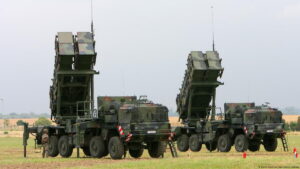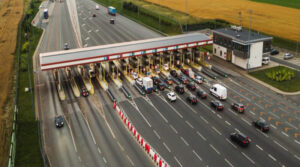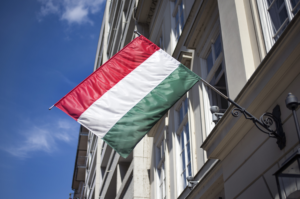
Consulting firm Deloitte has released the 14th edition of its Property Index 2025 report on European housing markets. The study covers 28 countries. Ukraine was not included in this study.
The highest average mortgage rates are in Hungary (9.35%), Poland (7.67%), and Romania (6.89%). Deloitte
The lowest are in Bulgaria (2.83%), Croatia (2.86%), and Turkey (3.01%).
The average rate in Europe is 4.36%, which is slightly lower than last year and reflects the gradual easing of monetary policy in a number of countries.
Deloitte notes that against the backdrop of a “bottleneck” with new projects and sustained demand, the rental segment is strengthening (rates are rising not only in capital cities but also in regional centers). At the same time, high rates and regulatory lags in permits continue to put pressure on property affordability, especially in large agglomerations.
Deloitte Property Index 2025 — a comparative study of European housing markets: prices for new buildings, affordability (in years of gross salary for a 70 m² apartment), rental dynamics, and mortgage rates. Key findings and figures are available on the Deloitte Property Index 2025 report page.

Hungarian Foreign Minister Péter Szijjártó said that Budapest and Belgrade have agreed to speed up the construction of an oil pipeline between the two countries. The 190 km Hungarian section is planned to be completed by the end of 2027, according to the Serbian Economist Telegram channel.
“We have agreed with Serbian Energy Minister Dubravka Jedovic-Handanovic to speed up the construction of the oil pipeline between Hungary and Serbia. The 190 km Hungarian section should be completed by the end of 2027,” he said on social network X, emphasizing the importance of energy cooperation against the backdrop of Ukraine’s attacks on the Druzhba oil pipeline, which supplies oil to Hungary and Slovakia, among other countries.
Why the project is important for these countries and the entire Balkan region
Increased energy security and diversification of routes
The new oil pipeline will reduce Hungary and Serbia’s dependence on traditional routes, especially in the context of instability caused by damage to Druzhba. This increases the reliability of supplies and reduces energy risks.
Regional energy integration
The construction of infrastructure connecting the Balkan and Central European regions helps strengthen economic ties and stimulates the growth of the energy market in the region.
Strategic independence
Independence from single transit routes provides greater flexibility in times of crisis and allows countries to respond more quickly to external challenges.
Economic impact and infrastructure development
The project creates jobs, contributes to the development of transport and energy infrastructure, and attracts investment for both Hungary and Serbia.
Geopolitical stability in the Balkans
The Balkan region has traditionally been at the crossroads of geopolitical interests. The new route strengthens its strategic importance and helps reduce dependence on external factors.
The Hungarian-Serbian oil pipeline project is not just a technical initiative. It serves as the foundation for a new energy architecture in the region, creating a sustainable, independent, and mutually supportive security system, which is particularly relevant in light of current geopolitical realities.
Source: https://t.me/relocationrs

Denmark and Germany have agreed to participate in the new format of arms supplies to Kyiv proposed by US President Donald Trump, while France, Italy, the Czech Republic, and Hungary have refused, Western media reported on Wednesday.
In addition, Bloomberg reported on Wednesday that Europe increasingly feels the need to end its dependence on US weapons.
“Europe is heavily dependent on the US defense industry. However, due to trade tariffs, President Trump’s attitude toward NATO and his lack of commitment to defending the alliance’s countries, European countries will increasingly prioritize investments in their own defense systems,” the agency’s sources said.
According to the European portal Politico, France has refused to participate in the purchase of American weapons for Ukraine. The publication’s sources said that instead, the government intends to focus on increasing its own defense budget, which President Emmanuel Macron promised last weekend to almost double by 2027 compared to the 2017 budget.
In addition, Paris wants to support European manufacturers who previously supplied Ukraine with anti-missile systems and other weapons.
Italy also has no plans to purchase weapons from the US for delivery to Ukraine, but will continue to provide military assistance to Kyiv. Unnamed representatives of the Ministry of Defense told the newspaper La Stampa that there had never been any talks about purchasing American weapons for Kyiv.
In addition, the newspaper notes that Italy does not have the funds to carry out operations of this kind. According to the newspaper’s sources, the problem is so acute that the only purchase from the US planned by Italy for the next ten years is a batch of F-35 fighter jets for its own needs.
The Czech government, in turn, said that military aid to Kyiv would continue, but through participation in other initiatives and purchases from Czech, not American, manufacturers.
Hungarian Foreign Minister Péter Szijjártó said that Budapest does not intend to participate in the purchase of American weapons for Ukraine.
Berlin and Copenhagen have so far given their official consent to purchase weapons from the US. Danish Foreign Minister Lars Rasmussen said he was fully prepared to join the funding.
The Dutch Foreign Ministry, in turn, said it was considering participating in the program. However, despite the government’s positive assessment of the initiative, Amsterdam has not yet confirmed its commitment to direct participation.
According to NATO Secretary General Mark Rutte, Sweden, Norway, and the United Kingdom are also expected to join the funding.
On July 11, Trump announced that US NATO allies would purchase weapons from Washington, which could then be transferred to Ukraine.
During a press conference with Trump on Monday, Rutte called it “logical” that European countries would pay for US arms deliveries to Ukraine.
European diplomacy chief Kaja Kallas said on Tuesday that EU countries would prefer Washington to provide part of its military aid to Ukraine free of charge. “If we pay for these weapons, it means that we, not the US, are providing this military aid,” Callas said at a press conference in Brussels. She stressed that Brussels “would like to see these costs shared.”

On May 1, 2025, Hungary will introduce restrictions on the movement of freight transport throughout the country.
The Embassy of Ukraine in Hungary officially announces that, in connection with the public holiday declared by the Hungarian side, restrictions will be imposed on the movement of trucks and combined transport vehicles with a maximum permissible weight of over 7.5 tons on the territory of Hungary on Thursday, May 1, from 6:00 a.m. to 10:00 p.m.
We recommend that you take this information into account when planning your trips and international transport.

The Hungarian parliament has voted to withdraw from the International Criminal Court (ICC), becoming the first European Union country to do so. Foreign Minister Péter Szijjártó said that the ICC had lost its impartiality and credibility, turning into a politicized institution.
The decision to withdraw coincided with Israeli Prime Minister Benjamin Netanyahu’s visit to Budapest. Netanyahu, against whom the ICC has issued an arrest warrant on charges of war crimes in Gaza, thanked the Hungarian leadership for its “courageous and principled” decision.
According to the Rome Statute, withdrawal from the ICC takes effect one year after the official notification to the UN. Until then, Hungary is obliged to fulfill its obligations, including cooperation with the court.
States parties and non-parties to the ICC
As of April 2025, 125 states are parties to the Rome Statute, including all countries of the European Union, except for Hungary after its decision to withdraw. Among the participants are Canada, Australia, the United Kingdom, France, Germany, Japan, South Korea, Ukraine, and most countries in Latin America and Africa.
Some major powers are not members of the ICC.
The United States: signed the Rome Statute in 2000 but has not ratified it.
China: has neither signed nor ratified the Statute.
Russia: signed the Statute in 2000, but withdrew its signature in 2016.
India: has neither signed nor ratified the statute.
Israel: signed but did not ratify the charter and withdrew its signature in 2002.
Before Hungary, only two countries have officially withdrawn from the ICC.
Burundi: in 2017.
Philippines: in 2019.
Hungary’s decision may cause tensions with other EU countries that remain committed to the principles of international justice.

Experts Club Information and Analysis Center has analyzed the inflation rate in Hungary and its trends in Hungary in recent years. Inflation in Hungary in 2025 continues to decline after record highs in 2022-2023. As of March 2025, annual inflation stood at 4.7%, down from 5.6% in February.
The main drivers of inflation
The decline in inflation is due to stabilizing food and energy prices. However, rising rental prices and services continue to put pressure on the overall price level
Government and central bank measures
The central bank of Hungary maintains the key interest rate at 6.5% to contain inflationary pressures. The government is taking steps to control prices in key sectors of the economy.
Outlook
Experts expect inflation to continue to decline to around 3.5% in 2026, approaching the central bank’s targets
Year Inflation (%)
2000 9,79
2001 9,15
2002 5,26
2003 4,66
2004 6,75
2005 3,56
2006 3,90
2007 7,95
2008 6,06
2009 4,20
2010 4,87
2011 3,93
2012 5,66
2013 1,71
2014 – 0,23
2015 -0,07
2016 0,40
2017 2,35
2018 2,84
2019 3,37
2020 3,33
2021 5,11
2022 14,61
2023 17,13
2024 3,8
2025 4.7 (March)